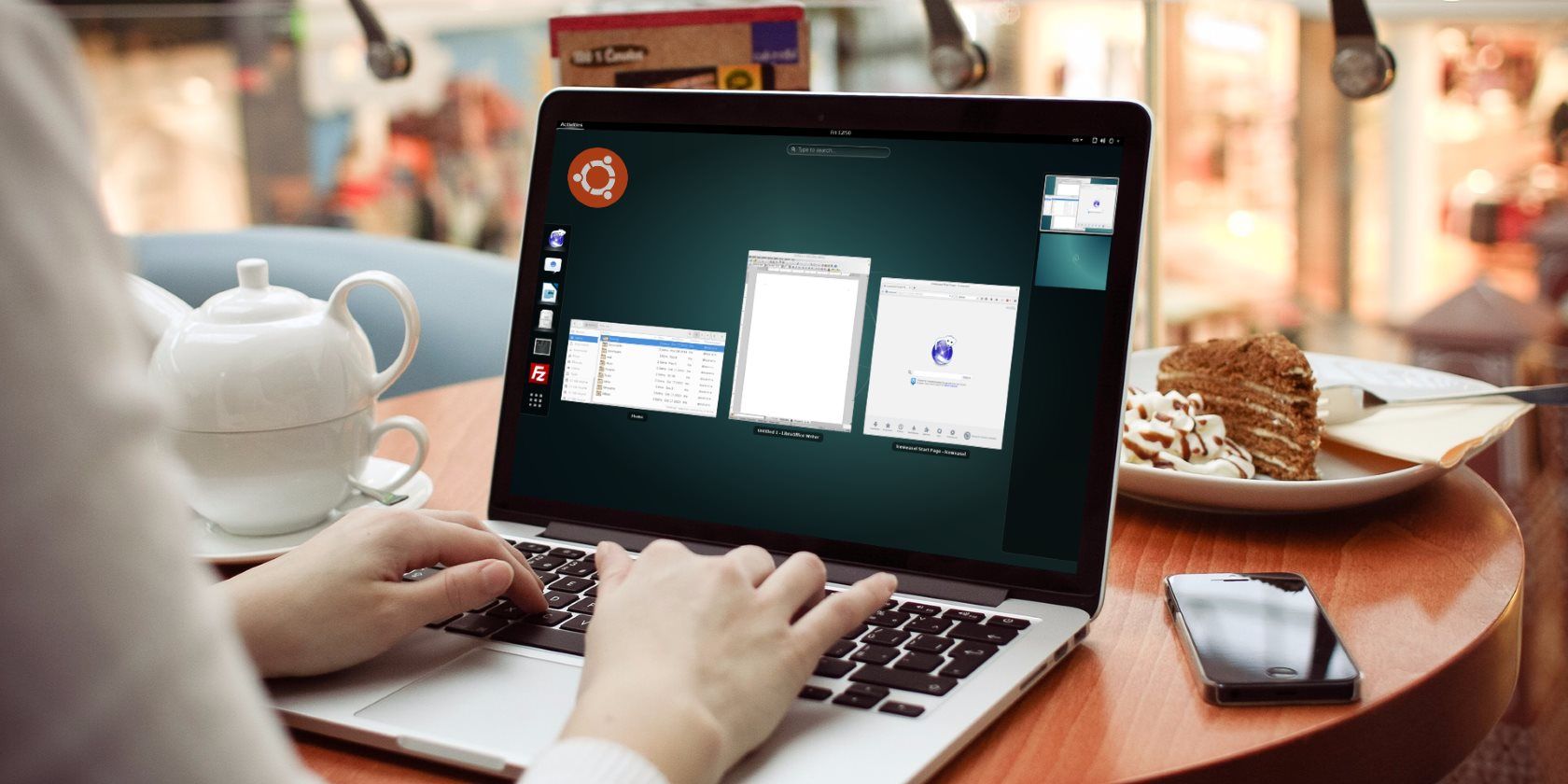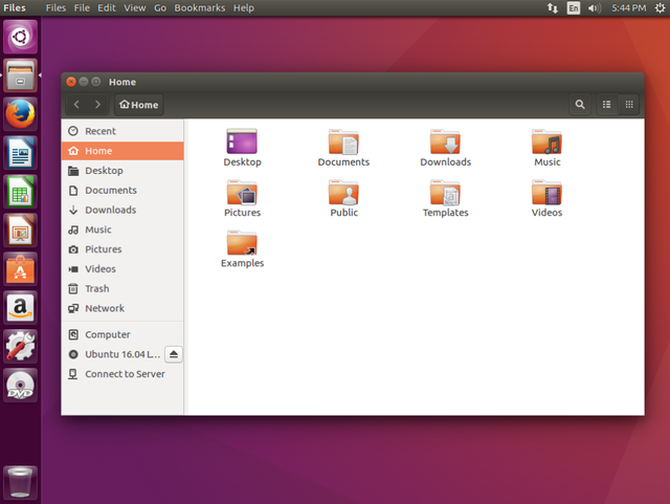After six years of charting its own course, Ubuntu is now heading in a bold new direction. Canonical founder Mark Shuttleworth recently announced the end of the Unity and Mir projects and a plan to switch Ubuntu's default desktop to GNOME in version 18.04. Just like that, much of the Ubuntu identity is going away.
For many new users, this will result in introducing an Ubuntu they've never known. For folks who have been around since the pre-Unity days, this offers the promise of going back to how things used to be. However you view the announcement, switching to GNOME means big changes are in store for the Ubuntu desktop that millions of people love.
1. Compatibility With the Rest of Linux
When I started using Linux, the difference between Ubuntu and Fedora seemed to be a matter of a different theme and whether codecs were easy to install. A few years later, that changed. First there was the Ubuntu Software Center. Then there was Unity. After this came talk of Convergence, Mir, and Snap packages. There was even a mobile project, Ubuntu Touch.
Ubuntu has been gradually heading down a path of becoming less compatible with the rest of desktop Linux.
This has been concerning for the broader open source community. Ubuntu is currently the Windows of the Linux world. If a company releases an app or game for Linux, they often start with Ubuntu. Sometimes they stop there, and people are left to create packages for other Linux operating systems on their own. Would this even be possible in a world where developing for Ubuntu means supporting a different desktop environment, display server, and package format than everywhere else?
With Shuttleworth's announcement, this concern is largely moot. Ubuntu will no longer have its own desktop environment. And since GNOME supports Wayland, not Mir, Ubuntu won't have its own display server either. Or a mobile platform. As for Snap packages, we'll have to wait and see what Canonical decides, but having way too many package formats is a problem Linux users have long learned how to live with.
2. More Similarity Between Ubuntu and Other Linux Operating Systems
Not only was Ubuntu becoming less compatible with other Linux distros, using it had become a unique experience. Unity may be open source, but no other major distros have rallied behind the project. Unity is Ubuntu's baby, and the result is that when you see an Ubuntu screenshot on the web, you know it.
Now Ubuntu will be one of many distros that come with GNOME. From a commercial standpoint, Canonical's desktop will lose its unique identity. On the surface, using Ubuntu probably won't feel all that different from Fedora or openSUSE. Unless, that is, Canonical decides to tweak the default GNOME desktop in a way that feels more like Unity. With a few extensions, that isn't hard to do.
3. Closer Connection With the Broader Community
GNOME is widely used across versions of Linux and other Unix-like operating systems. Having the most popular desktop Linux distro support GNOME again could have more far-reaching benefits for the broader free software ecosystem. At the very least, this means more users to report bugs in GNOME and more interest in seeing those issues fixed.
Much of Canonical's involvement with GNOME software has consisted of patching apps to fit the company's unique vision for Ubuntu. Now that Ubuntu has had the better part of a decade to try and fail at becoming its own thing, Canonical may be more invested in working directly with the GNOME developers to implement changes. Only time will tell.
4. Easier Maintenance (And Hopefully Fewer Bugs)
Whether or not Canonical takes an active interest in contributing to GNOME, the company should have an easier time maintaining a stable level of quality. This has been a growing problem among more recent releases of Ubuntu. Many users have grown frustrated with a desktop that has barely changed, lost features, and become less stable.
Without having to create its own software and tackle all of the bugs alone, the Ubuntu desktop will now reap the benefits that come from using an interface widely tested by users across the Linux landscape. Canonical won't be entirely responsible for fixing whatever goes wrong, either. The slimmed down desktop team can focus its remaining resources on doing a good job packaging what comes in, rather than designing and maintaining software themselves. Speaking of which...
5. Some People Will Lose Jobs
This change in focus is coming at the expense of jobs. Open source values aside, Canonical is a private company. Following the announcement of switching back to GNOME, The Register reported that Canonical has layed off over half of the team that worked on Unity. Remaining team members are being shuffled to other departments.
Cuts aren't limited to Unity, for that matter. Other departments are seeing a reduction in headcount as well. In contrast, parts of the company focused on areas of interest -- such as cloud and Internet of Things -- are growing.
Shuttleworth says these changes are needed to attract investors who may take issue with a company paying for so many people whose departments aren't turning a profit. Nonetheless, it's sad to see people lose their jobs. Not only that, these were some of the relatively few positions out there that pay people to design desktop Linux.
6. Ubuntu May Become a Better Place to Try Out Other Desktop Environments
Just because Ubuntu defaults to GNOME, that doesn't mean you're stuck there. There have always been alternate versions known as "flavors" that come with other desktop environments. These include Kubuntu, Xubuntu, and Ubuntu MATE. For years now, you've had the option of using an Ubuntu desktop that defaults to GNOME thanks to Ubuntu GNOME.
In the pre-Unity days, non-GNOME desktops didn't receive quite the love that default Ubuntu did. While Canonical is unlikely to start pouring resources into them now, the company seems less interested in developing features that they can't use either. Kubuntu users won't be sitting around waiting for a working messaging menu, Ubuntu One applet, or a KDE-friendly Ubuntu Software Center, because those projects no longer exist. This puts alternative desktops on more equal footing.
What Do You Hope the Future Holds for Ubuntu?
Much of what I've said above is speculation. While some of these changes are guaranteed to happen, we have to wait and see what Ubuntu ultimately becomes. Version 18.04 is a year away.
This gives us plenty of time to discuss what we hope to see next. Are you happy about the news? What do you want to happen in future versions of Ubuntu? See you in the comments!


